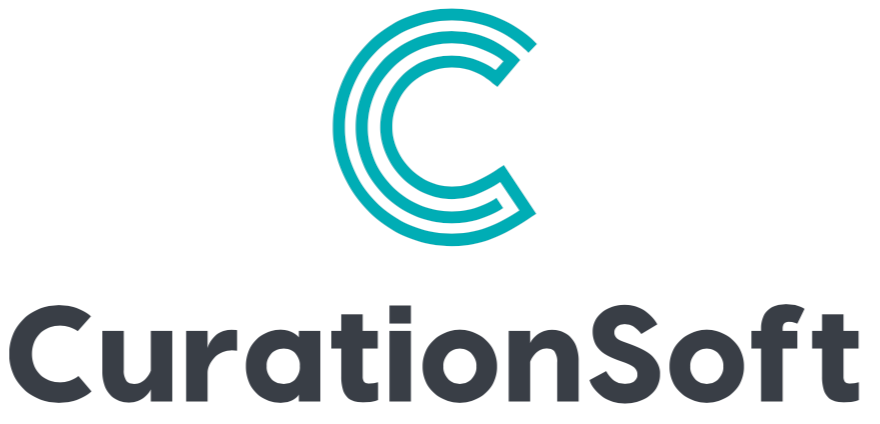Unlock the Power of Web Copywriting: Tips for Marketers
Web copywriting is an essential element of any successful digital marketing campaign. It involves the creation of content for websites and other online platforms that will engage readers, boost SEO rankings, and ultimately convert visitors into customers.
In this blog post, we’ll cover what web copywriting is all about, why it’s essential to your business strategy, how to craft engaging content, the best practices for optimizing search engine results (SEO), writing techniques tailored to different platforms such as blogs or social media posts, analyzing performance metrics to make informed decisions on future campaigns and working with a professional web copywriter who can help you achieve these goals.

What is Web Copywriting?
Web copywriting is the process of creating content for websites that are designed to attract, engage, and convert visitors into customers. It’s an essential part of any successful digital marketing strategy as it helps businesses create a positive user experience on their website.
The goal of web copywriting is to provide readers with helpful information in an engaging way that will help them make decisions about your product or service. This means using language that speaks directly to the reader and conveys the benefits of what you offer clearly and concisely.
When writing web copy, it’s important to keep SEO best practices in mind so that your content can be found by search engines like Google and Bing. This includes optimizing titles, meta descriptions, headings, images, keywords, and other elements for maximum visibility online. Writing for different platforms is also essential when crafting compelling web copy, as each forum has its own set of rules for formatting text correctly. For example, social media posts should be short but informative, while blog posts should be longer, with more detail provided throughout the article.
Analyzing performance metrics such as page views and clickthrough rates can help you determine which pieces of content resonate most with your audience so you can adjust accordingly moving forward. By understanding how users interact with your website content through analytics tools like Google Analytics or Adobe Analytics, you can gain valuable insights into what works best for your business needs.
How is Writing for Websites Different From Other Copywriting?
Website copywriting requires understanding how to craft persuasive messages that drive action. It’s different from traditional ad copy, email copy, and content writing in several ways.
Benefits of Web Copywriting
The advantages of web copywriting are countless. Some of them are given below:
10 Best Website Copywriting Practices
Website copywriting is a powerful tool for marketers. Use the proper techniques to ensure your message reaches and resonates with your target audience. Here are 10 best practices you can use in website copywriting:
Use a Conversational Approach: Use “You” and “Your.”
Regarding content marketing and SEO, the second-person point of view can be a powerful tool. Writing “you” and “your” speaks directly to your reader, creating an instant connection that draws them in. Take Rover, for example. They could have simply listed their services—dog boarding, house sitting, dog walking—but they went above and beyond by adding extra lines of copywriting that give each service a personal touch. Perfect if you need overnight pet care or Whenever your dog needs a walk.
This approach makes your content more relatable to readers while showing them that you understand their needs and are here to help them. It gives off an authoritative tone without sounding too pushy, a great way to build trust with potential customers!.
It’s important not to overdo it; using “you” too often can come across as patronizing or condescending, so use it sparingly throughout your writing instead of every sentence (or, worse yet, every word). You should also avoid exclamation points as these make the text seem overly enthusiastic, which is only sometimes appropriate depending on the context.
Write Compelling Headlines
Strong headlines are essential for any successful content marketing and SEO strategy. They can help you capture the attention of your target audience, increase engagement with your content, and drive more organic traffic to your website.
To write compelling headlines, start by understanding your target audience and what they’re looking for in a headline. Use keywords that will be relevant to them, and make sure the headline accurately reflects the content of the article or blog post. Keep it short – most people won’t read past 8 words – but make sure it’s descriptive enough to grab their attention.
Be creative with language when writing headlines; use vivid verbs, alliteration, puns, or other devices to draw readers in without being too cheesy or over-the-top. Ask yourself if there is a better way to phrase something so that it stands out from other titles on similar topics. Finally, consider adding numbers to your headline, as this can often give readers an idea of how much information they will get from reading the article (e.g., “7 Tips For Writing Compelling Headlines”). This also helps search engines understand what kind of content you are providing, which can lead to higher rankings in SERPs (search engine results pages). Make sure each headline is personalized, engaging, and concise (ideally, six words). You can also AB test different headlines to see which works best.
Keep Text Scannable
There’s no need for lengthy text in website copywriting; instead, focus on making it scannable so that readers can easily understand why they should convert or what value you offer them quickly without reading through long paragraphs of information first.
Include Visuals & Multimedia Elements:
Adding visuals such as images or videos helps break up long blocks of text while still conveying important information about products or services offered by companies – this makes it easier for customers who may not have time (or patience.) To read through large amounts of written content.
Focus On Customer Benefits & Features:
Website visitors want to know how products or services benefit them directly rather than just listing out all its features – try focusing more on customer benefits when crafting web copy so that potential buyers feel compelled enough to purchase from you instead of competitors offering similar items but without emphasizing those advantages upfront.
Use Psychology to Motivate Your Readers
We all know that effective marketing is more than just your words. To really engage your readers and motivate them to take action, it’s essential to understand how psychology can play a role in copywriting. The primacy effect states that people best remember information presented at the beginning of a message. When writing sales copy or blog posts, starting with your most important information is essential. Similarly, the recency effect suggests that readers better retain information presented last in a message. So when drafting listicles or other types of content, save your most convincing fact or argument for the end of your copy.
You can also use scarcity tactics to drive action from readers by creating urgency around an offer or resource they may be interested in acquiring. For example, if you offer limited-time discounts on products or services, ensure this is clearly communicated so visitors don’t think they can come back later and still get the same deal. You can show potential buyers why others have chosen your business over competitors by including customer reviews on product pages or featuring testimonials on landing pages.
Use Keywords Strategically:
Keywords play an essential role in SEO optimization since search engines rely heavily on these terms when indexing websites – make sure that any relevant keywords are used strategically throughout web copy but don’t overdo it either; otherwise, Google could penalize pages with too much keyword stuffing which would negatively affect rankings.
Use a Clear Call to Action (CTA):
Creating a compelling call to action (CTA) is essential for any marketer looking to maximize the impact of their content. A CTA should be clear and concise, providing readers with a direct path to take after reading your content. Vague words like “next” or “continue” don’t provide enough direction for readers, so it’s essential to use specific language that outlines what will happen when they click on the link. For example, instead of using “Learn More,” you could use something like “View Pricing Plans” or “Find Out More.”
You can also look at how other companies craft their CTAs for inspiration. When creating your own CTA, make sure it speaks directly to the reader and gives them a sense of urgency or excitement about taking action. Use strong verbs such as “Discover,” “Explore,” or “Unlock” to give readers a better idea of what clicking on the link will do. Additionally, consider adding incentives such as discounts or freebies if appropriate – this can encourage people to follow through with your CTA. Try different approaches until you find one that resonates with your audience and drives more conversions from your content marketing efforts.
Make Sure Grammar & Spelling Are Correct:
Grammar mistakes can distract from overall messages conveyed in web copy – take extra care when proofreading texts before publishing them online since errors could lead potential customers away from trusting businesses due to incorrect usage of language conventions.
- Monitor Analytics Data:
Analyze data collected via various analytics platforms. Monitor trends associated with user behavior onsite, including average session duration times, clickthrough rates, conversion rates, and more. Then use insights gained to improve existing content and further optimize future ones based on findings.
5 Best AI Website Copywriting Tools
AI-powered website copywriting tools can help you create engaging content that resonates with your target audience. Here are five of the best AI website copywriting tools available today:
Copy.ai is a powerful tool for creating high-quality written content quickly and efficiently. With its AI-powered writing assistant, you can generate SEO-optimized website copy that easily captures your audience’s attention. It uses natural language processing to help you generate content tailored to your target customer’s preferences. Copy.ai provides all its users with access to a library of resources such as industry best practices, tips on how to write better content faster, and more so they can create captivating marketing materials with fewer efforts.
Quillbot is a free AI-based writing assistant explicitly designed for bloggers and writers who need help coming up with ideas or crafting sentences quickly. Its advanced algorithms scan through millions of words from various sources, including books, magazines, newspapers, websites, blogs, etc., so you don’t have to start from scratch when brainstorming new topics or trying out different word combinations.
WordAi is another excellent option if you’re looking for an AI-powered writing tool to help you develop creative ideas and write high-quality blog posts faster than ever. This software uses artificial intelligence algorithms to automatically rewrite entire paragraphs into more concise versions without sacrificing readability or accuracy – perfect for busy marketers who need quick turnaround times but still want their work to be accurate and professional looking.
Grammarly is a must-have tool if you want your written work to look polished and professional every time – no matter how rushed the project may be. This grammar checker scans through all types of documents in real-time while providing helpful suggestions on how best to improve them grammatically speaking; plus, it even offers style advice. Whether you’re writing emails or blog posts about complex topics like SEO strategies, Grammarly has got your back covered.
Lastly, we have Copywritely – an automated proofreading service powered by machine learning algorithms that helps ensure that all written material meets specific standards set by both humans and search engines such as Google & Bing. The software checks spelling mistakes & typos, evaluates sentence structure & flow, highlights keyword density issues, suggests synonyms where appropriate & much more. It allows users maximum flexibility when producing top-notch content at lightning-speed speeds.
Web Copywriting for Different Platforms
Writing for different platforms is a critical component of successful content marketing. Understanding the differences between desktop and mobile writing and other digital channels, such as social media and email campaigns, is essential.
Regarding web copywriting, there are distinct differences between writing for desktop and mobile devices. Desktop users typically have more time on their hands, so they can easily read more extended pieces of content. On the other hand, mobile users tend to be in a hurry and need information quickly; therefore, shorter sentences and paragraphs should be used when writing for this platform. Additionally, since most people use their phones while on the go or multitasking, it’s essential to ensure that your message is concise yet still engaging enough to keep readers interested.
Social media posts require short bursts of information that are easily digestible by readers who may only have a few seconds before moving on to something else. As such, you should create catchy headlines that grab attention immediately and then provide brief snippets of relevant information about your topic or product/service, offering to pique interest without overwhelming the reader with too much detail at once. Additionally, don’t forget about visuals – adding images or videos can help draw even more attention from potential customers.
Email campaigns often involve multiple messages sent over an extended period (e.g., weekly newsletters). For these messages, it’s essential to create compelling subject lines that will encourage recipients to open up the emails to learn more about what you have going on within your business or organization. Furthermore, try using storytelling techniques within each message instead of simply listing facts; this will help engage readers throughout the campaign rather than just during one email blast.
Benefits of Working With a Professional Copywriter
When creating compelling web copy, many businesses opt for a professional copywriter. After all, an experienced writer can craft content that resonates with your target audience and helps convert visitors into customers. Here are some key benefits of working with a professional copywriter:
Professional copywriters understand the importance of optimizing content for search engines. They know how to use keywords strategically and create meta descriptions to help your website rank higher on Google and other search engines.
A good copywriter knows how to capture readers’ attention by using storytelling techniques such as anecdotes or metaphors. They also have experience writing persuasive calls-to-action (CTAs) that will encourage people to take action after reading your content.
Professional writers are well-versed in different writing styles, from casual blog posts to formal whitepapers and press releases—and everything in between. This means they can adapt their writing style based on the needs of each project, helping you reach different audiences more effectively than if they were doing it yourself without any prior knowledge or experience in this area.
An experienced writer understands the importance of maintaining consistency across all written materials associated with your brand. From emails sent out by customer service reps to blog posts published on social media channels like Twitter or Facebook, they can ensure every piece is consistent with your company’s overall message and tone.
Working with a professional copywriter can save you time, as they already have expertise in crafting engaging web content quickly. Having someone else write for you allows more time to focus on other business aspects, such as marketing campaigns or product development.
3 Excellent Website Copywriting Examples
Content marketing and SEO are two essential elements for any successful website. With them, your website will be able to reach its full potential. Copywriting is vital in content marketing and SEO, as it helps you create engaging content that resonates with your target audience. Here are some best examples of website copywriting:
Frequently Asked Questions
Conclusion
Web copywriting is essential to any successful digital marketing strategy. Crafting engaging content that speaks to your target audience and adheres to SEO best practices can help you reach more people, drive conversions, and increase brand awareness. If you need more time or resources to do it yourself, consider working with a professional web copywriter with experience in this field. With the right approach, web copywriting can be an invaluable tool for driving success online.
Are you looking for a comprehensive solution to help your business succeed with content marketing and SEO? Look no further than curationsoft.com! Our platform offers the best in copywriting, keyword optimization, social media integration, analytics tracking, and more – all designed to give your website an edge over the competition. Get started today by signing up for our free trial, or contact us directly to learn how we can help boost your online presence!





